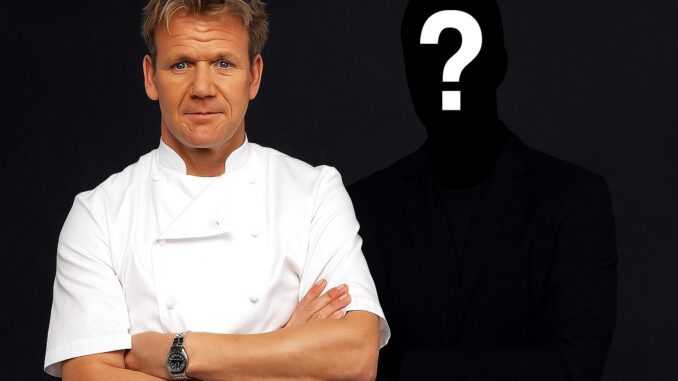
For years, Gordon Ramsay’s name has been synonymous with fiery passion, uncompromising standards, and blockbuster television. From Hell’s Kitchen to Kitchen Nightmares and beyond, his shows have captivated millions with explosive tirades, impossible challenges, and transformations that seem miraculous. But behind the carefully edited sequences and tightly choreographed chaos, insiders claim the reality was far less glamorous—and at times, disturbingly toxic. In exclusive conversations, former crew members and participants opened up about what they describe as a “manufactured inferno,” a world where fear reigned supreme and the line between authenticity and spectacle blurred into something far darker.
The public sees Gordon as the uncompromising perfectionist. That image has made him a global star, but those who worked behind the scenes insist that the man and the machine around him created a climate where people were pushed past breaking point—not just contestants, but crew. “The screaming wasn’t just for the cameras,” said one former assistant producer. “It bled into everything. Even off-camera, people were terrified of getting it wrong, because the mood could flip in an instant.”
Contestants often spoke later about their gratitude for the opportunity, but some now admit privately that they left shows traumatized. A line cook who competed on Hell’s Kitchen described the atmosphere as “military boot camp, only without the discipline—just humiliation as fuel.” According to them, producers deliberately engineered stress, withholding sleep and food to heighten reactions. “We were pawns in a game,” the contestant recalled. “It wasn’t about food. It was about who would crack first on camera. They wanted breakdowns, not breakthroughs.”
Even among the crew, whispers of disillusionment grew. One cameraman recalled fourteen-hour days in stifling kitchens, capturing take after take of Ramsay berating hopeful chefs. “The producers would say, ‘We need more fire, more explosions,’ and if Gordon wasn’t angry enough, they’d nudge situations to provoke him. You start realizing you’re not documenting reality—you’re manufacturing it. It felt dirty.”
The biggest myth, insiders suggest, is the miraculous restaurant turnaround on Kitchen Nightmares. Viewers watched as failing establishments supposedly transformed in a week, saved by Ramsay’s genius. But the truth, some say, was much messier. “The success stories were cherry-picked,” admitted a production coordinator. “Some places were in debt so deep that no amount of menu tweaking could help. We knew it, Gordon knew it, but the show had to tell a different story. Six months later, many were closed, but that part never made the final cut.”
Not everyone blames Ramsay himself. Several insiders emphasized that the production companies drove much of the manipulation, pushing for drama at all costs. But Ramsay’s explosive persona became the cornerstone of that strategy, and he leaned into it. “He knew what the cameras needed,” said one crew member. “If the scene was too flat, he’d flip the table, curse someone out, or throw food. He understood rage was his currency, and he spent it liberally.”
Still, the collateral damage was real. Contestants described long-term anxiety, nightmares, even therapy after their appearances. “I went on thinking it would launch my career,” confessed a former MasterChef hopeful. “Instead, I left feeling broken. They isolated us, cut us off from family, and filmed every tear. Then they edited those tears into a narrative I barely recognized. The ‘me’ on TV wasn’t me—it was a caricature designed for ratings.”
Editing, according to multiple accounts, was one of the darkest secrets. Entire arcs were crafted in post-production, stitching together unrelated moments to create villains or underdogs. “We’d watch raw footage and know someone was just nervous,” said an editor. “By the time the episode aired, that same person looked arrogant, cruel, or incompetent. It was heartbreaking, because you knew their real life was going to be affected forever.”

There were also claims of favoritism. Certain contestants, insiders allege, were pre-selected as “story winners,” receiving more screen time, more coaching, and even second chances others weren’t afforded. One assistant put it bluntly: “Reality TV isn’t about fairness. It’s about narrative. If someone fits the story, they’re protected. If not, they’re disposable.”
What makes these revelations even more unsettling is the normalization of suffering. Crew described a culture where burnout and breakdowns were badges of honor. “If you weren’t crying in the bathroom at least once a week, you weren’t working hard enough,” laughed one ex-producer bitterly. Contestants were treated no better. “When someone broke down, the cameras zoomed in instead of stepping back. Their pain was content, and we packaged it for entertainment.”
To be fair, not every voice is critical. A handful of participants defended Ramsay, insisting that his harshness pushed them to new heights. But even these defenders admitted the environment was extreme. “He is brutal, yes,” said one former Hell’s Kitchen finalist. “But in a twisted way, he means it. The problem isn’t him—it’s the system that profits from his brutality.”
And that system is vast. Ramsay’s empire spans continents, with multiple shows airing across networks, creating a cycle where outrage is both product and marketing. “Anger sells,” said one former publicist. “Every meme, every viral clip of Gordon screaming—it all feeds the machine. The networks don’t care if people love him or hate him, as long as they’re watching. The negativity is the brand.”
In the end, perhaps the most chilling confession came from a longtime crew member who finally walked away. “We told ourselves it was just TV, that people signed up for it. But after years of watching dreams crushed, seeing talented chefs reduced to nervous wrecks, I couldn’t do it anymore. There’s a cost to turning suffering into spectacle, and I didn’t want that on my conscience.”
These accounts don’t erase Ramsay’s undeniable talent or his impact on modern food culture. But they complicate the narrative, forcing fans to question whether the drama they love comes at too high a price. Was Gordon Ramsay a visionary mentor—or the face of a system built on exploitation? The answer, as with most uncomfortable truths, may be both.